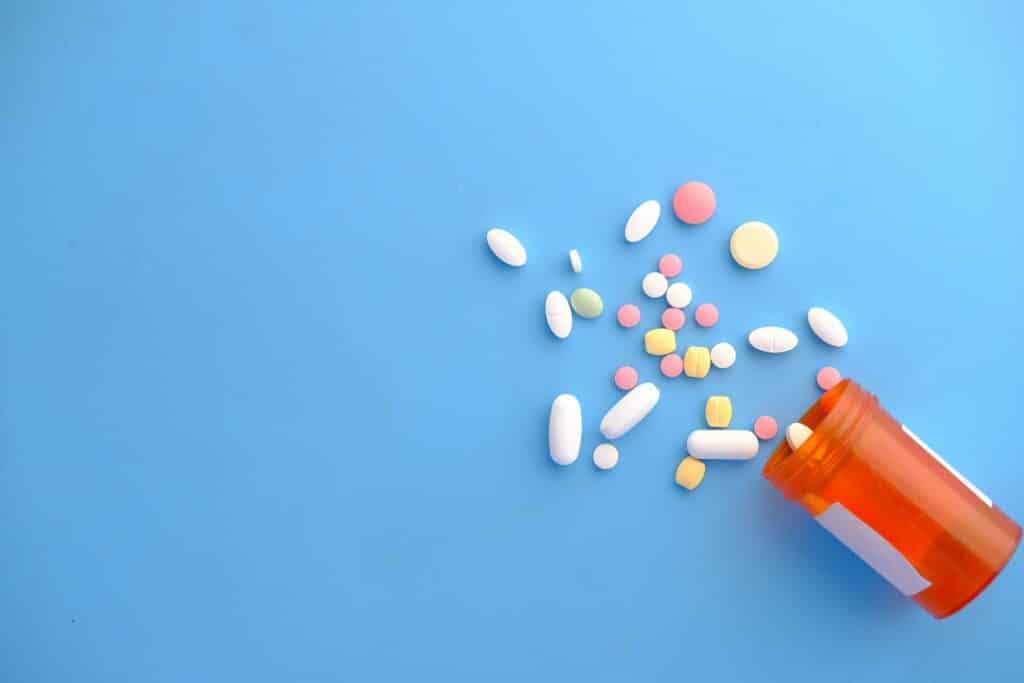The past year has been a rollercoaster of stress, anxiety, and distress for many, but self-medication with drinks or drugs can easily inflame your existing problems, while at the same time introducing new problems in the form of substance use disorder.
Like all forms of substance abuse, self-medicating with alcohol or drugs often starts out innocently and with the purest intentions.
Maybe you start by smoking a joint before sleep, hoping it will help you relax. You might use Xanax or Valium for the same purpose.
Perhaps you start by drinking a few beers to destress, or you use prescription medications for focus or for relaxation. Unfortunately, these issues can lead people down a path of addiction. That said, there are treatment options like our Orange County drug rehab to help anyone and everyone struggling with substance abuse.
We’ll start today’s guide to the dangers of using substances to blot out emotions or pain with a simple self-medication definition.
What is Self-Medication?
If you use alcohol, illicit drugs, or prescription medications outside the parameters of the prescription to manage the symptoms of any kind of mental health issue, this is known as self-medicating.
For some people, the mental health condition is undiagnosed, and the symptoms appear unmanageable. Using drink or drugs can offer a fleeting fix.
Others may be diagnosed with depression or anxiety yet still reach for substances as a way of coping with the distressing symptoms of these mental health disorders.
More generally, the pandemic and the resultant financial and emotional backlash means that many more people started self-medicating worry, stress, anxiety, and depression.
Let’s look more closely at why people self-medicate, whether that’s self-medicating depression with alcohol or anxiety by abusing Xanax.

Why People Self-Medicate
Research shows that people typically self-medicate for one of the following reasons:
- For some people, substances appear to reduce the distressing symptoms of a mental health condition or illness to a more manageable level, making self-medication an effective if flawed temporary coping mechanism.
- For others, abusing substances is the only way they can muster to cope with uncomfortable emotional feelings, or with the symptoms of a co-occurring mental health disorder.
Research indicates that people commonly report using addictive substances to cope with:
- Mood disorders
- Anxiety disorders
This review of self-medication literature shows that almost 22% of those with anxiety disorder use alcohol or drugs as a coping mechanism. A similar percentage of those with PTSD report self-medicating with substances (21%), as well as 23% of those with major depressive disorder. Among those with type 1 bipolar disorder, the number of self-medicating is a shocking 41%, according to the same review of data.
Now, everyone feels down every now and again, and everyone can feel out of balance, especially when external events seem to bear down on you heavily, as with the pandemic and it’s knock-on effects.
If, though, you find that feelings of fear and hopelessness, sadness and depression, or stress and anxiety are impacting your daily living, this could point to an underlying mental health issue. While we understand that popping a pill, reaching for a drink, or lighting a joint can offer a quick reprieve, ask yourself the following two questions:
- Is self-medicating with drink or drugs addressing the root cause of your emotional issue?
- Do you feel you will improve the symptoms long-term by abusing substances?
However you may feel to the contrary, self-medicating is by definition doing absolutely nothing to tackle the underlying cause of distress. You are avoiding the issue instead of dealing with it. Beyond this, you are likely to inflame the symptoms over time rather than soothing them, while at the same time becoming increasingly dependent on the substance in question.
Self-Medicating to Deal with Stress
If you have been experiencing unusually high-stress levels over the past year, that’s understandable.
When you start using substances as your default coping strategy for stress, though, you’re highly unlikely to remedy this issue through self-medication. Not only will you be ignoring the underpinning issue by blotting it out with substances, but you could soon find yourself with a dual diagnosis: substance use disorder with a co-occurring mental health condition.
The good news is, you are far from powerless. If you take the time to explore and understand the reasons why you are feeling stressed, you will usually find a healthy and effective coping strategy, even if you can’t manage to find an immediate solution to the problem. Ask yourself how many times you have woken with a hangover to find your problems have disappeared and you feel better than before.
If you have trouble finding coping strategies on your own, entering into a rehab program often can equip individuals with the personal tools, coping mechanisms, and therapy to help individuals regulate their stress and emotions in a more healthy way.
The risks of self-medication negate any short-term benefits you might feel.

Self-Medicating with Alcohol and Drugs
Self-medicating with alcohol is commonplace as it is not only legal and socially acceptable, but also easily available.
For many people with depression or other mental health conditions, it’s not surprising they reach for the nearest legal option when things feel overwhelming.
Alcohol is a central nervous system depressant, though. You may find that a very small amount of alcohol gives you some fleeting respite from the symptoms of both anxiety and depression, but if you drink heavily and over the long haul, you could easily trigger alcohol dependence, and you could just as easily develop full-blown alcohol use disorder.
As with most forms of self-medication, the more you start relying on alcohol as a crutch, the more likely your depression will worsen over time, even if you experience some ephemeral relief.
For the same reason of availability as people turn to alcohol, many others without access to illegal drugs resort to abusing prescription painkillers like opioids, benzodiazepines, and ADHD medication. If these addictions begin it is best to find a rehab center as soon as possible because treatment closest to the onset of addiction symptoms will be more effective. Our rehab near Los Angeles takes people at all stages of their addiction and utilizes the best treatments and therapies to combat addiction and promote recovery. This approach along with dual diagnosis treatment ensures the core cause of substance abuse disorder is treated and helps promote mental wellness and full recovery.
Others turn to recreational drugs from marijuana and cocaine to meth and heroin to try to manage various mental health symptoms and uncomfortable emotions. As with all abuse of addictive drugs, this can lead to substance use disorder and the need for professional rehabilitation.
Marijuana is the most widely used substance by those self-medicating the symptoms of depression, according to research.
As with most types of self-medication substance abuse, abusing marijuana can inflame the symptoms of depression.
Overcoming the Risks of Self-Medication at Renaissance Recovery
For anyone who has been self-medicating the symptoms of depression, anxiety, or another mental health condition, our dual diagnosis treatment program will help you attack both these issues head-on.
Whether you choose our dual diagnosis treatment program, or you prefer a dedicated depression treatment program, or a mental health IOP, you’ll first need to stop using substances.
Once detoxed, our treatment programs offer you an evidence-based combination of the following:
- Medication-assisted treatment
- Counseling
- Cognitive behavioral therapy
- Dialectical behavior therapy
- Sober Living
To stop relying on substances when you are feeling stressed or depressed, get the help you need by reaching out to California rehab center today at 866.330.9449.









